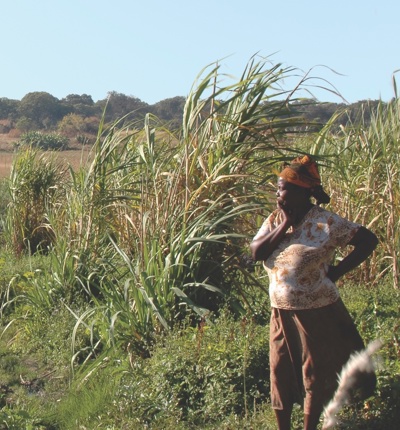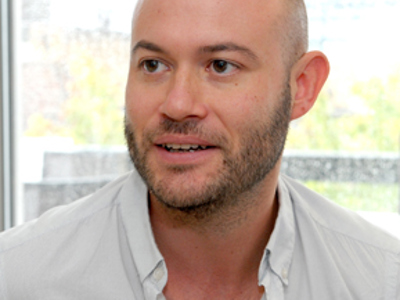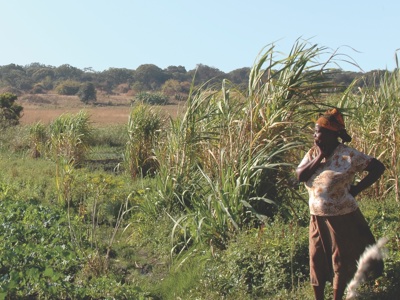
Chilekwa Mumba awarded the Goldman Prize for his work on the Vedanta case
Environmental campaigner Chilekwa Mumba has been awarded the prestigious Goldman Environmental Prize for Africa for his work on the copper mining case brought against Vedanta and its former Zambian subsidiary, Konkola Copper Mines, in the English Courts – Lungowe & Others v Vedanta Resources and Konkola Copper Mines.
Posted on 24 April 2023
Chilekwa worked closely with the legal team from Leigh Day for six years to bring the case against Vedanta on behalf of people living near the mine.
The legal case settled without any admission of liability in 2021. However, before the settlement was reached the case went through a lengthy court process regarding the issue of parent company liability which culminated in a landmark judgment by the Supreme Court in April 2019. The ruling case established an important precedent for providing access to justice for communities who suffer harm by multinationals who have UK-based parent companies.
The Supreme Court judgment held that the claimants had a right to bring a case in the English courts against the UK-domiciled parent company, Vedanta, and their Zambian subsidiary, KCM. The court found that a duty of care was clearly arguable due to the proclaimed control of the parent company over their subsidiary. A key principle from this judgment was the idea that a company can be held accountable for any proclamations of oversight and control whether or not that is in fact a reality.
After Vedanta’s takeover of KCM in 2004, residents of four local villages—Shimulala, Kakosa, Hippo Pool, and Hellen—noticed contamination in the Kafue River and its tributaries. Residents took KCM to court in Zambia in 2006 but, after years of litigation, were unsuccessful in the Zambian Courts.
Chilekwa Mumba, 38, is a community organiser who grew up in Chingola, in the Copperbelt Province, where his father was a miner-turned-Pentecostal minister. Chilekwa runs an orphanage in Lusaka with his wife. When he learned of the plight of the communities in Chingola, in 2013, he felt an acute responsibility to protect the community and environment of his childhood.
In 2015, Chilekwa reached out to Leigh Day and asked its lawyers to visit the area to see the impact on the communities. The legal team decided to take on the case and took instructions from over 2,500 community members which Chilekwa assisted with
From 2015 to 2021, as the legal case moved forward, Chilekwa served as a facilitator between the Chingola communities and the Leigh Day lawyers. He arranged meetings with villagers and the legal team to explain the lawsuit process and goals, translated materials for non-English speakers, assisted experts in collecting water quality samples and gathered information on how each of the 2,000 villagers who participated in the legal case were affected.
During the long campaign, Chilekwa and his partners were harassed. In 2017, he and Leigh Day lawyer Oliver Holland were arrested at a public gathering while speaking with villagers about the lawsuit.
Following the Supreme Court ruling in Vedanta, claims brought on behalf of two Nigerian communities in Okpabi and Bille v Royal Dutch Shell also reached the UK Supreme Court. The Supreme Court confirmed the principles in Vedanta and found that Royal Dutch Shell could owe a duty of care to the claimants and therefore may be liable for the damage caused by the oil spills.
A further case to address the duty of care principle was in Begum v Maran on behalf of the widow of a Bangladeshi shipyard worker, against shipping company Maran (UK) Limited. The Court recognised that despite Maran (UK) Limited attempting to hide behind the sale of the vessel the company may still owe a duty of care to the claimant because it may have been responsible for creating a danger by selling the vessel to the beaches in Bangladesh.
In these judgments the courts have repeatedly shown that a duty of care may extend to anyone who is at foreseeable risk of harm due to a corporation’s operations. This paves the way for ‘supply-chain’ cases where multinationals set standards for and have oversight over supplier operations. Ongoing cases related to this principle include the case against Tesco and Intertek on behalf of migrant workers in a Thailand garment factory; the case against Dyson on behalf of workers in a Malaysian factory and the case against cocoa supplier Olam on behalf of a group of Ghanaian children.
Oliver Holland, partner at law firm Leigh Day, who worked with Chilekwa on the case said:
“We are delighted that Chilekwa has been recognised by the Goldman Prize for his significant contribution to furthering access to environmental justice through his work on the Vedanta case. The Supreme Court ruling on the case was a momentous step forward in holding multinationals to account in the English courts.
“The decision also gave way to an array of interesting possibilities for climate change liability litigation against parent companies and their foreign subsidiaries, as their cumulative greenhouse gas emissions are likely to be considerably higher than when taken separately, arguably making prospective claims against them more viable.
“Since being published the Supreme Court judgment has been heavily relied on in the English courts and globally. Its legacy is that multinationals must review the impacts and foreseeable risks of their operations or face accountability in the English Courts.”
About the Goldman Prize
The Goldman Environmental Prize honours the achievements and leadership of grassroots environmental activists from around the world, inspiring all of us to take action to protect our planet. The Prize recognizes individuals for sustained and significant efforts to protect and enhance the natural environment, often at great personal risk. The Goldman Prize views “grassroots” leaders as those involved in local efforts, where positive change is created through community or citizen participation. Through recognizing these individual leaders, the Prize seeks to inspire other ordinary people to take extraordinary actions to protect the natural world. More information about the prize, and its other winners, can be found on its website.

Oliver Holland
Oliver is a partner in Leigh Day's international and environment teams. Oliver's practice covers environmental harm, human rights, modern slavery & consumer litigation, including expertise in conflict of law issues & cross-border disputes.

Legal claim by more than 2,500 Zambian villagers in a case against Vedanta Resources Limited
Villagers, represented by Leigh Day solicitors, and Vedanta Resources Ltd issued a joint statement today, Monday 18 January 2021

Supreme Court rules Zambian villagers' case against Vedanta to be heard in English courts
The Supreme Court has ruled today that a case brought by almost 2,000 Zambian villagers against Konkola Copper Mines (KCM) and its parent company Vedanta Resources Plc can be heard by the English courts. KCM is a Zambian company which is a subsidiary of UK-based Vedanta.

